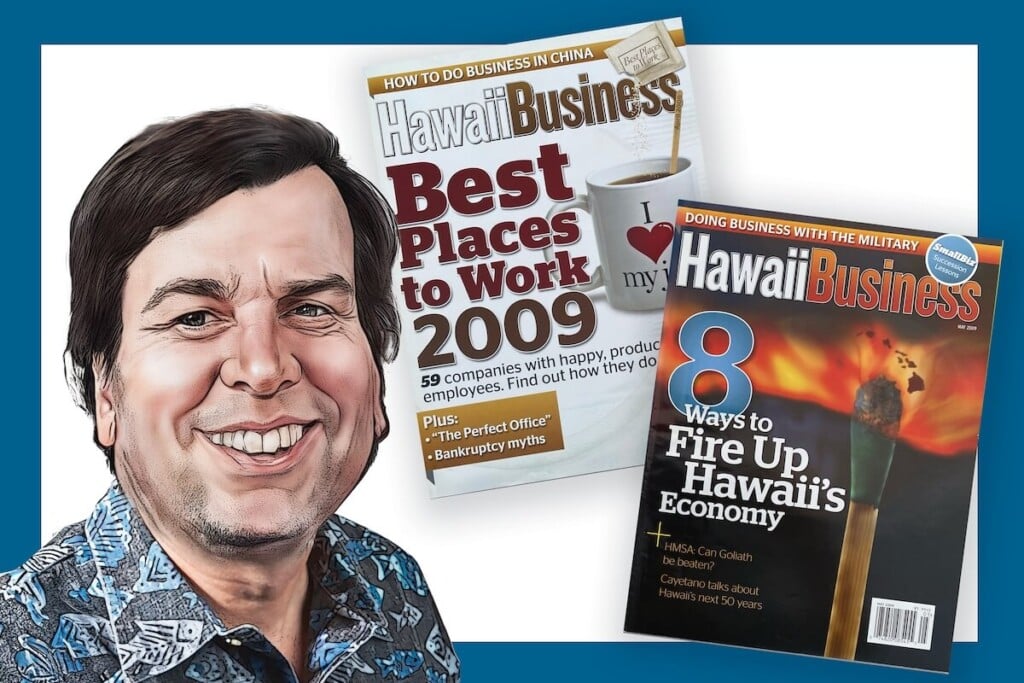Editor’s Note: Two Affordable Ideas

IT WILL TAKE a lot to pull us out of Hawaii’s housing crisis, but here are thoughts on some partial solutions.
ADUs are a good idea, and each county has different rules on what are formally called accessory dwelling units. Honolulu City Council is considering legislation to make it legal for Oahu homeowners to add ADUs to their property, which could create affordable homes for tens of thousands. But a trainwreck awaits those homeowners at the building-permit offices.
Dennis Hollier’s report on page 46 explains how the counties have improved their permit systems, but the procedures remain difficult to navigate because of the shortage of staff, complexity of the rules, number of agencies involved and other issues.
If the system is slow and expensive for professionals, imagine the fate of ordinary homeowners. Here’s how it would play out: A neighborhood’s bravest person decides to add an ADU, makes initial investments, hires a contractor and crashes into the permit system. Eight months later, boiling with frustration and out a few thousand dollars, he gives up with nothing built. Word spreads and no one within three miles is willing to try.
Yes, the homeowner could hire a third-party reviewer, but Dennis’ story shows that’s no panacea. Besides, a third-party reviewer adds to the homeowner’s costs and ADUs are supposed to be affordable.
Hawaii’s a highly taxed state, but our property tax rates are low compared to other places, and Nonresident homeowners unfairly benefit.
So, if the Honolulu City Council legalizes ADUs, it must also add manpower to permit offices. I suggest ADU specialists whose sole job is to help homeowners and their contractors get through the system efficiently. Imagine the buzz in your neighborhood after the guy next door actually gets his ADU permitted, built and rented within six months. Lots of others would do it, the housing supply would rise, and fewer of our sons and daughters would have to move to Texas or live on the street.
How to pay for the extra permitting workers without cutting other services or adding to the taxes paid by local residents and tourists? We have high taxes, but, compared to most jurisdictions, we have low property tax rates, because they don’t fund public schools. So, triple the property tax rate on homes that are not really homes, but are actually second homes or vacation properties for those who are not residents of Hawaii.
Who is and who isn’t a resident? Simple, you declare on your tax forms that you are a resident of Hawaii and pay state income tax. Also, if you rent that home year-round to residents who pay state income tax, or to a military family based here, then your property tax won’t go up either. But if you are renting the home to tourists, you pay the higher rate. And don’t make it a meaningless, incrementally higher rate; A tripled rate would raise real money. Remember that our other taxes subsidize our relatively low property tax rates.
Why penalize out-of-state homeowners? Two reasons: First, they take some of Hawaii’s limited housing out of the local pool. It may be high-end housing, but if they didn’t own it and leave it empty 48 weeks of the year, a local family would be living there. If mainlanders or foreigners decide they want to live in the home most of the time and become contributors to our economy by paying state income taxes, shopping in our stores, using local businesses and paying the excise tax, great; cut their property taxes back to the standard rate.
Second, if they are willing and able to pay the extra property taxes on a home they use infrequently, that’s fine. Use a tiny fraction of the extra property taxes they pay to fund a better permit office and the rest to finance other ways to increase affordable housing. Don’t use the money for anything else.
Luxury home Realtors and developers should not worry: the effect on sales would be minimal. Sales are booming now and anyone who can afford to spend $5, $10 or $20 million dollars on a second (or sixth) property, can afford to pay tens of thousands more a year in property taxes. Consider it an investment in keeping up the property values; after all, if we don’t get some homeless people off the street, they may start moving into those neighborhoods, and consider what that would do to the value of those properties.
If wealthy outsiders decide they’re not willing to pay extra property taxes, so they sell (or don’t buy in the first place), that’s fine. It means one more home for locals to live in.






